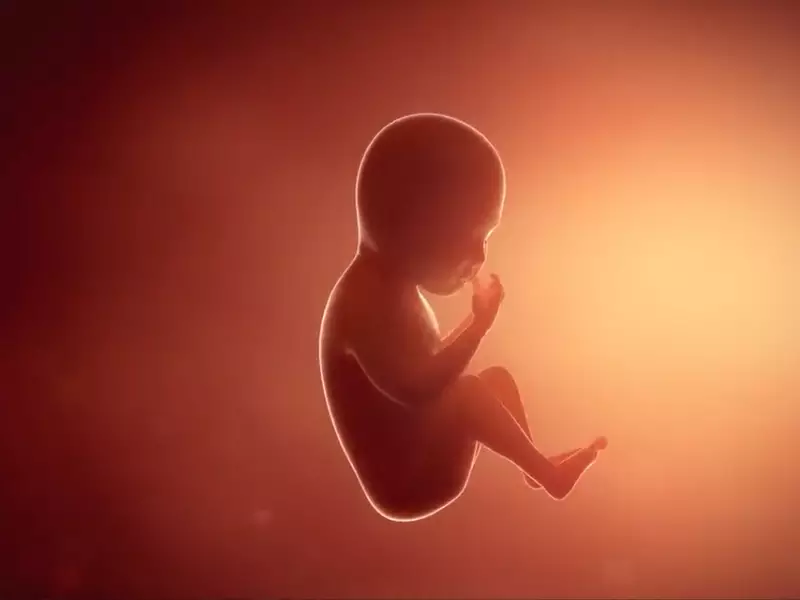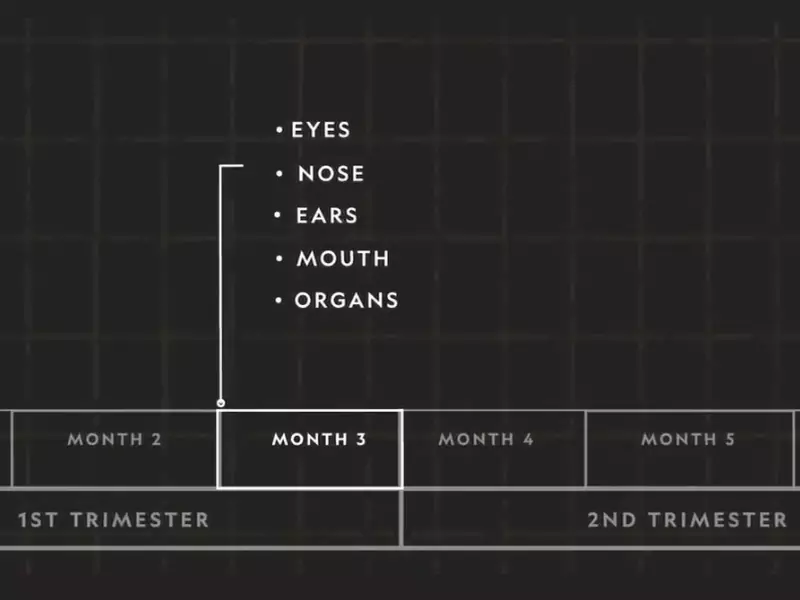When discussing the journey to childbirth, the terms gestation and pregnancy are often used interchangeably, yet they encompass distinct aspects of this remarkable process. Gestation refers to the period from conception until birth, measuring the growth and development of a fetus inside the mother’s womb. Pregnancy, on the other hand, focuses more broadly on the condition of carrying one or more offspring within the uterus.
The difference between gestation and pregnancy lies primarily in their scope and application. Gestation is a precise term used to describe the duration and development stages of the embryo or fetus, typically measured in weeks. In humans, it lasts about 40 weeks from the last menstrual period, a timeframe that varies significantly among other species. Pregnancy encompasses the entire process of gestation but also includes the physiological and emotional changes experienced by the expectant mother, preparations for childbirth, and post-partum considerations.
Understanding these differences is crucial not only for medical professionals but also for expectant parents, educators, and anyone interested in the intricacies of reproductive biology. By distinguishing between gestation and pregnancy, we can appreciate the nuances of prenatal development and the comprehensive nature of carrying and nurturing unborn offspring. This knowledge enhances our grasp of both the scientific and personal dimensions of birth, emphasizing the importance of precise terminology in healthcare and education.

Basic Concepts
Gestation Defined
Gestation is a term that refers to the period from conception to birth when an embryo or fetus is developing in the uterus. This term is universally applicable, spanning across the animal kingdom, yet its specifics vary significantly among different species. Medically, gestation is critical as it encompasses the entire process of growth and development inside the womb, influencing prenatal care and the health outcomes of both the mother and offspring. The general timeline of gestation varies; for instance, in humans, it typically lasts about 40 weeks, measured from the first day of the last menstrual period (LMP) to birth.
Pregnancy Overview
Pregnancy is the condition of carrying one or more offspring inside the womb. It begins with the fertilization of an egg by a sperm, leading to the formation of an embryo that implants itself in the uterine wall. Pregnancy is marked by significant biological and physiological changes in the mother’s body, designed to support the developing fetus. These changes include hormonal adjustments, increase in blood volume, and adaptations in the maternal organs. Essentially, pregnancy is a complex journey that culminates in childbirth, involving numerous stages of fetal development.
Key Differences
Duration
The duration of gestation can greatly vary among different species, highlighting one of the key distinctions between gestation and pregnancy as commonly understood in humans. For instance, elephants have a gestation period of about 22 months, the longest of any land animal, while mice have a gestation period of just 20 days. In contrast, human pregnancy is generally divided into three trimesters, lasting approximately 40 weeks or about 9 months. This comparison underscores the variability of reproductive strategies and developmental timelines across species.
Biological Processes
The biological processes of gestation and pregnancy, while overlapping, emphasize different aspects of reproductive biology. Gestation focuses on the development of the embryo or fetus and includes all the stages from fertilization to birth. Pregnancy, particularly in humans, not only involves the growth of the fetus but also the extensive physiological changes the mother undergoes to nurture and support fetal development. These include changes in hormone levels, blood supply to the placenta, and the immune system’s adaptation to protect the fetus.
Medical Perspectives
From a medical perspective, healthcare professionals differentiate between gestation and pregnancy to tailor care and monitoring. Gestation is often discussed in terms of specific developmental milestones and the health of the fetus, while pregnancy care focuses on the health and wellbeing of the mother as well. Prenatal care thus encompasses a dual focus: monitoring the progress of fetal development (gestation) and ensuring the mother’s health conditions are optimal for supporting this development (pregnancy).
Stages and Milestones
Gestation Stages
Gestation can be divided into several stages, each characterized by distinct developmental milestones. In humans, these include the germinal stage (the first two weeks, where fertilization and implantation occur), the embryonic stage (weeks 3-8, where major organs and structures begin to form), and the fetal stage (from the ninth week until birth, characterized by growth and maturation of the tissues and organs). Notable animals have their unique gestational timelines, such as the kangaroo, which has a gestation period of about 33 days before giving birth to a highly underdeveloped joey that continues its development in the mother’s pouch.
Pregnancy Milestones
Human pregnancy is commonly divided into three trimesters, each marked by specific milestones:
- First Trimester: The embryo develops into a fetus, with the formation of most major organs. This period is crucial for the structural development of the fetus and is often associated with significant symptoms for the mother, such as morning sickness.
- Second Trimester: Marked by the continued growth of the fetus and the beginning of fetal movements detectable by the mother. The risk of miscarriage decreases significantly during this trimester.
- Third Trimester: The fetus grows rapidly, gaining weight, and preparing for birth. This period is often marked by further physiological changes in the mother’s body, preparing for labor and delivery.

Terminology and Usage
Clinical Usage
In both medical and veterinary contexts, the terms gestation and pregnancy are used with precision, but their application varies significantly. In human medicine, pregnancy typically refers to the state or condition of a woman carrying an embryo or fetus within her uterus. This term is laden with implications for the woman’s health, lifestyle adjustments, and medical care. Gestation, on the other hand, is more specifically used to denote the duration or timeline of development from conception to birth.
In veterinary medicine, gestation is often the preferred term when discussing the development period of embryos and fetuses in animals. The use of “pregnancy” in such contexts is less common, except in cases where the physiological state of the female animal is being discussed in detail, particularly in domestic animals like cats, dogs, and livestock where the health and care of the pregnant female are of concern.
Common Misunderstandings
Misunderstandings and mix-ups between gestation and pregnancy are common, largely due to their overlapping areas of relevance. One common confusion arises from the belief that gestation only refers to the time an embryo or fetus spends in the uterus, excluding the initial stages of conception and early development. Another misunderstanding is the assumption that pregnancy is solely a human condition, ignoring the fact that the term can apply to any mammalian species capable of viviparous reproduction. Clarifying these terms not only enhances accuracy in conversation but also in understanding medical and biological concepts.
Impact on Care and Research
Healthcare Implications
The distinction between gestation and pregnancy has significant implications for prenatal care. Recognizing gestation as the period of embryonic and fetal development allows healthcare providers to focus on the growth milestones and health indicators of the unborn child. Meanwhile, understanding pregnancy as the condition affecting the woman allows for a broader focus, encompassing the well-being of the mother, nutritional needs, physical health, and psychological support. This dual focus is essential in providing comprehensive prenatal care that supports both the mother and the developing baby, ensuring the best possible health outcomes.
Research and Studies
The differentiation between gestation and pregnancy is also crucial in research within embryology, obstetrics, and related fields. In embryology, the emphasis is on the stages of gestation, understanding how embryos form, develop, and reach fetal stages. Studies often focus on specific aspects of this period, such as genetic expression, organ development, and the impact of external factors on the development process.
In obstetrics, research might lean more towards the pregnancy aspect, examining how different conditions or interventions during pregnancy affect both the mother and the fetus. This includes studying the effects of diseases, medications, lifestyle factors, and prenatal care interventions on pregnancy outcomes. The clear distinction between gestation and pregnancy enables researchers to design studies with precise focus areas, contributing to targeted improvements in medical care and understanding of developmental biology.
Frequently Asked Questions
What is gestation period?
The gestation period is the time span from conception to birth during which an embryo or fetus develops inside the mother’s womb. For humans, this period typically lasts about 40 weeks, measured from the last menstrual period. It’s a critical time for fetal growth and development, with specific milestones marking each stage of pregnancy.
How does pregnancy affect the mother’s body?
Pregnancy induces significant physiological changes in the mother’s body to support fetal development, including hormonal adjustments, increased blood volume, and changes in organ function. These adaptations also involve physical changes like weight gain and abdominal expansion, as well as emotional and psychological shifts to prepare for childbirth and parenting.
Can gestation periods vary?
Yes, gestation periods can vary significantly among different species and even within the same species due to genetic, environmental, and health factors. In animals, gestation periods can range from a few weeks to several months. In humans, preterm and post-term births are common variations from the standard 40-week gestation, influenced by multiple factors including maternal health and lifestyle.
Why is understanding the difference between gestation and pregnancy important?
Understanding the difference is essential for accurate medical care and education. It allows healthcare professionals to provide precise monitoring and support throughout the developmental stages of the fetus and the overall health and well-being of the mother. It also helps in fostering a deeper understanding of the reproductive process, enabling expectant parents and the public to better appreciate the complexities of birth.
Conclusion
Distinguishing between gestation and pregnancy is more than a matter of terminology; it reflects a deeper understanding of the biological and emotional journey from conception to birth. Recognizing the specificities of each term enriches our knowledge of human development and the profound changes experienced by expectant mothers. This clarity enhances communication between healthcare providers and patients, ensuring that both the physiological development of the fetus and the holistic well-being of the mother are given the attention they deserve.
As we navigate through the intricacies of reproductive health, appreciating the nuances of gestation and pregnancy can empower individuals with the knowledge needed to make informed decisions and fully engage with the miracle of life. It underscores the marvel of human biology and the importance of nurturing life from its earliest stages, fostering a sense of wonder and respect for the process of bringing new life into the world.
